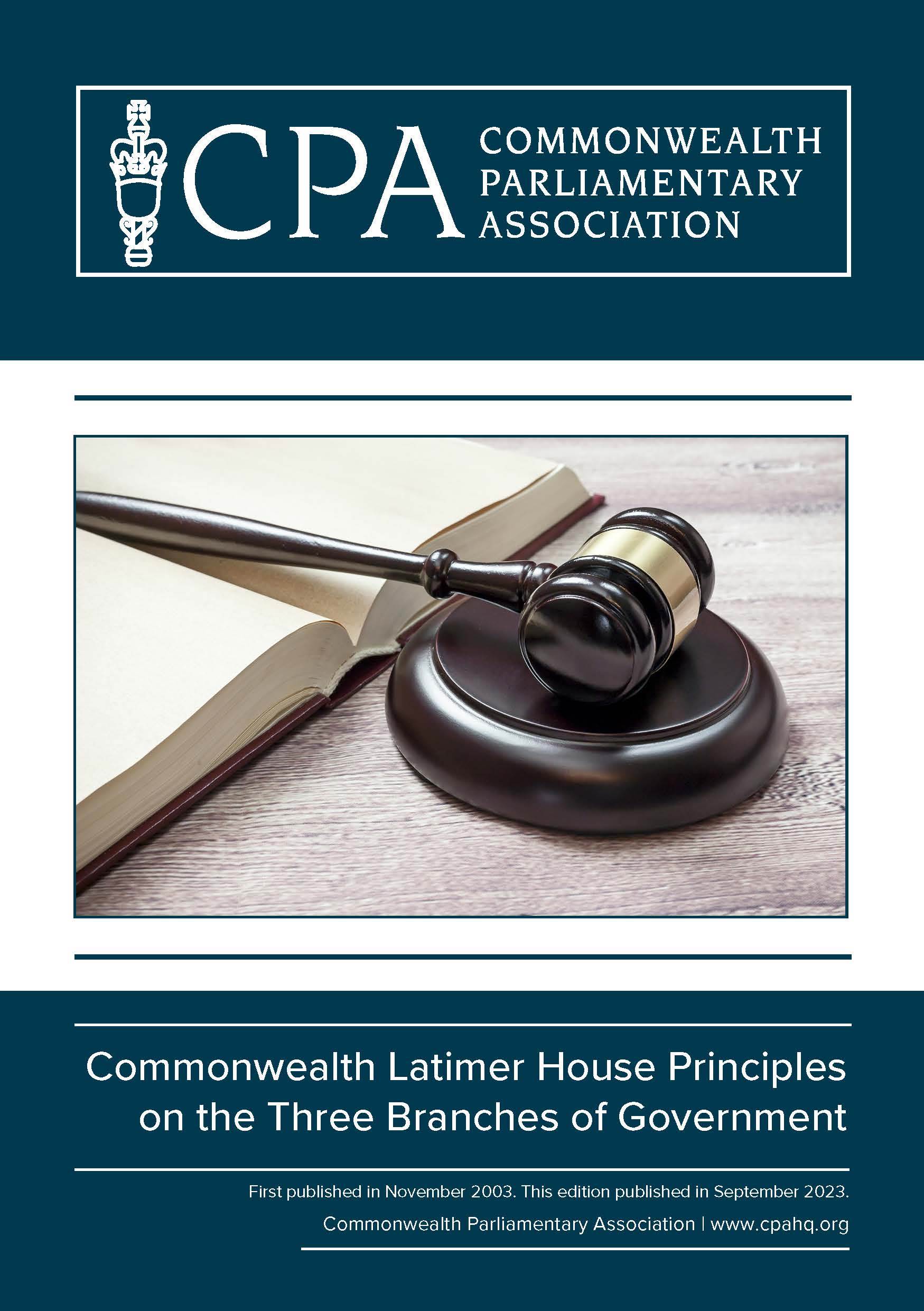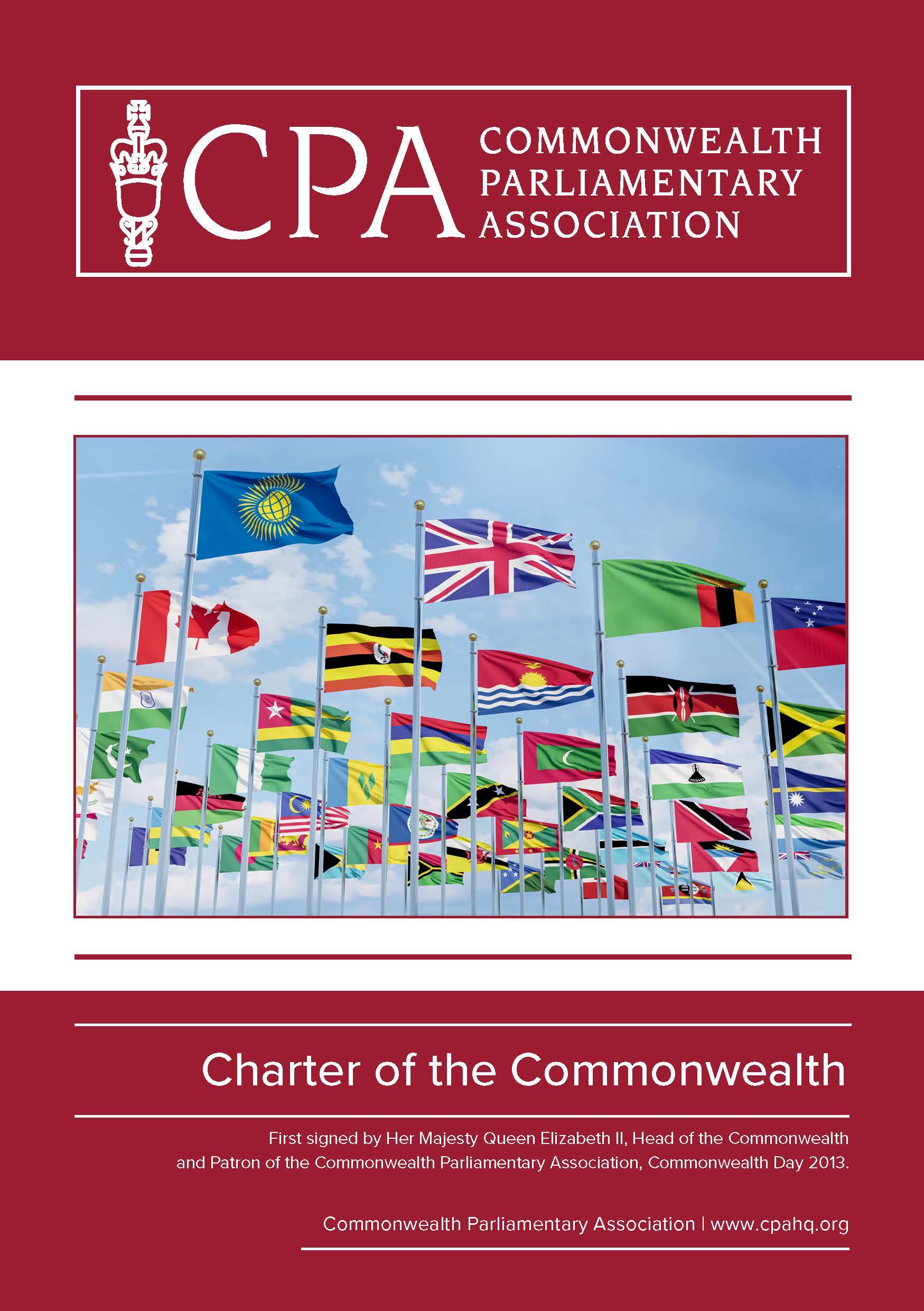
Commonwealth Latimer House Principles 20 Years On: The Power of Parliaments
The Commonwealth Parliamentary Association (CPA) played a key role in the establishment of the Commonwealth Latimer House Principles on the separation of powers, which highlights the importance of the separation of powers between the Legislature, the Executive and the Judiciary to ensure effective governance and democracy.
Effective Parliaments are one of the principal institutions of any functioning democracy and they are central to the attainment of UN SDG 16 on the role of effective, accountable and inclusive institutions at all levels.
This CPA blog series, with additional articles from The Parliamentarian, will explore many different aspects of the separation of powers in the Commonwealth.
In this series:
- Absolute power corrupts absolutely
- Fugit inreparabile tempus - the time for change is now!
- Lessons to learn (or not to learn) on judicial independence and separation of powers
- The Commonwealth Latimer House Process - 20 years of recognition
- How does the separation of powers impact on the functioning of democracy in the Commonwealth?
- Commonwealth Latimer House Principles: a lawyer’s perspective
- What were they thinking? Defining parliamentary intention and purpose: an Australian perspective
Published 7 December 2023

Absolute power corrupts absolutely

This blog explores the Power of Parliaments and the notion of absolute power through the ages, resulting in the concept of the separation of powers that we see today in relation to Commonwealth Parliaments. It also provides ‘Top Ten Tips for enforcing the Commonwealth Latimer House Principles and the Separation of Powers’.
Read the article ->
Fugit inreparabile tempus - the time for change is now!

This blog looks at the concept of parliamentary time and its impact on the financial and administrative independence of Parliaments. The importance of the separation of powers is explored and the constraints that it places on both Legislators and Legislatures in the Commonwealth. It also offers some solutions to the ‘time-old’ problems affecting Parliaments.
Read the article ->
Lessons to learn (or not to learn) on judicial independence and separation of powers

This blog article contrasts the separation of powers in the UK Parliament and the US Congress with reference to the Judiciary. It also examines the cautionary tale of the dangers of the politicization of the appointments to the Judiciary and the importance of maintaining the boundaries between the three branches of government.
Read the article ->
The Commonwealth Latimer House Process - 20 Years of Recogniton

This article from Dr Karen Brewer, Secretary-General of the Commonwealth Magistrates’ and Judges’ Association (CMJA), who helped to draft the original Commonwealth Latimer House Principles analyses their progress after 20 years and why we need judicial independence and accountability in the Commonwealth.
Read the article ->
Commonwealth Latimer House Principles: a lawyer’s perspective

As we mark the 20th anniversary of the Commonwealth Latimer House Principles on the separation of powers, leading lawyer Brian H. Speers (Immediate Past President of the Commonwealth Lawyers Association) gives his perspective.
Read the blog ->
What were they thinking? Defining parliamentary intention and purpose: an Australian perspective

A former Chief Justice of Australia, Hon. Robert French, AC gives his verdict on the separate but interacting functions of the Parliament and the Judiciary in making laws and interpreting them.
Read the article ->
How does the separation of powers impact the functioning of democracy in the Commonwealth?

Written by Dr Philip Loft, Senior Library Clerk in the UK Parliament’s House of Commons Library researching the Commonwealth and the UK’s Overseas Territories.
Read the article ->
Business, human rights and sustainable development across the Commonwealth

Dr Daniel Aguirre, Associate Fellow at the Institute of Commonwealth Studies looks at the links between sustainable development, business and human rights in the Commonwealth context.
Read the article ->
Further resources
The Parliamentarian 2023 Issue Four: Separation of Powers - 20 years of Commonwealth Latimer House Principles
Marking the 20th anniversary of the Commonwealth Latimer House Principles being officially recognised, this issue of The Parliamentarian brings together experts to examine their relevance today and to highlight the importance of the separation of powers between the Legislature, the Executive and the Judiciary to ensure effective governance and democracy.
To read this issue, download a copy here or view on our online reading platform, click here->



